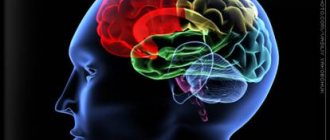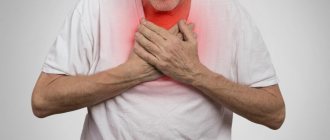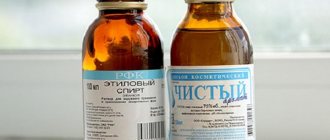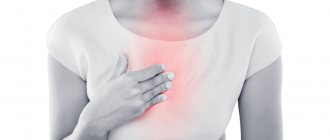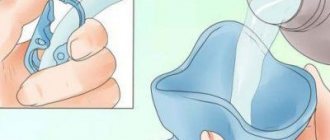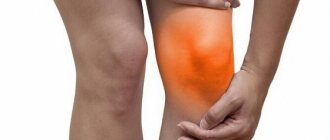Many people have experienced the consequences of taking large doses of alcoholic beverages. But intoxication is far from the same thing, and leads to serious consequences. Alcohol intoxication requires treatment, and in some cases it is impossible to do without doctors.
Alcohol overdose
When a person drinks a large amount of alcohol, negative changes occur in the functioning of internal organs and their health worsens. Regardless of the type of alcohol, the most common symptoms of overdose are headaches, nausea, vomiting and general weakness. If a healthy person who rarely drinks is sick with a hangover, then the symptoms of poisoning can be relieved with the help of pills or folk recipes. People with chronic pathologies have a harder time coping with negative manifestations.
Vodka poisoning
Cognac, vodka, tequila or whiskey contain a huge concentration of ethyl alcohol. With excessive consumption of these drinks, the main impact occurs on the liver, which does not have time to process enzymes. When poisoned, you may feel dizzy, have digestive problems, and have a decrease or increase in blood pressure.
Clinical picture of alcohol intoxication
In narcology, there are several stages of intoxication, which correspond to a certain concentration of ethyl alcohol in the blood.
Mild degree (0.5–1.5‰)
Characteristic:
- a good mood;
- feeling of cheerfulness, pleasure, complacency, playfulness, sympathy for others;
- self-confidence, increased self-esteem;
- talkativeness;
- excessive expressiveness of gestures and facial expressions.
Impaired coordination of movements is insignificant, speech is fast and loud, but the person is aware of what is happening, logic and consistency of thinking are maintained. This state lasts from 30–40 minutes to 2 hours, after which the mood normalizes, then psychomotor agitation disappears.
Medium degree (1.5–2.5‰)
A benevolent, high mood is replaced by anger, irritability, aggression, shame is dulled, unceremoniousness and tactlessness are characteristic, and traits of sexual promiscuity appear in behavior. Hidden grievances, unpleasant memories emerge in the memory, a feeling of jealousy and injustice appears.
Speech becomes very loud, but monosyllabic and slow: a drunk person finds it difficult to find words to express his thoughts and emotions, and makes obscene statements. His own rude, inappropriate jokes seem very funny and witty to him. The situation is only partially realized, coordination of movements is impaired.
This stage of alcohol intoxication of the body lasts several hours, after which drowsiness suddenly appears or slow sobering occurs. It is accompanied by severe weakness (can persist for several days), thirst, depressed mood, and lack of appetite. The events that took place are partially amnesic.
Severe degree (up to 5‰ and above)
The connection with reality is almost completely lost, speech is usually absent or only individual words and inarticulate sounds are pronounced. A drunk person does not understand the speech of others. Coordination of gait and movements is grossly impaired; somatovegetative symptoms include:
- decrease in temperature;
- hypotension;
- nausea and vomiting;
- urinary and fecal incontinence.
In severe cases, the onset of stupor and alcoholic coma is possible. Sobering up occurs very slowly, takes at least 2–4 days, and is accompanied by an aversion to food and sleep disturbances.
Rare forms of alcohol intoxication
- Atypical. Usually occurs against the background of neurological pathologies. It manifests itself as spontaneous outbursts of irritability and physical aggression, hysterical attacks. The behavior is demonstrative in nature, for example, suicide attempts in full view of others. Sometimes a person commits impulsive, inappropriate actions (theft, arson, exhibitionism).
- Pathological. Accompanied by short-term psychoses, it develops after drinking even small doses of alcohol with concomitant organic brain lesions and severe chronic diseases. Attacks of uncontrollable rage, motor automatisms, and delusions of persecution are possible. Actions cannot be explained logically. This state usually ends in deep sleep.
Enhanced poisoning therapy
7,500 pcs.
- Dropper volume 1500 ml
- Visit of a narcologist
- Patient examination
- Consultation with a narcologist
- Detoxification
- Doctor's orders
- Medicines for 3 days
- Monitoring the patient's condition
Order service
Poisoning with surrogate alcohol
Alcohol of dubious production is produced without complying with the rules and regulations. Such products contain a large number of harmful chemical elements that will lead to severe intoxication, and in most cases, death. The use of surrogates is a sure path to premature death.
Signs of alcohol poisoning
People suffering from alcohol addiction do not pay much attention to the quality of their alcohol. They can use ethyl food alcohol, as well as methyl alcohol, which is not intended for oral administration. When intoxicated with methanol, the following symptoms appear: psychomotor agitation, vomiting, nausea, dizziness. In case of poisoning with methyl alcohol, you should immediately call an ambulance.
Beer overdose
Many people do not consider a low-alcohol drink dangerous for the body or addictive. But, it also contains ethyl alcohol, albeit in small quantities. Beer is an insidious product, people drink a lot of it, so ethanol also accumulates in the organs, causing poisoning. Often the symptoms of beer poisoning include poor health, severe headaches, and vomiting.
Intravenous injections
There are many methods for eliminating the unpleasant feeling caused by drinking alcoholic beverages. In the clinic, blood purification is carried out by placing droppers:
- 5% and 10% glucose solution;
- 5% ascorbic acid solution;
- Reomacrodex, Rondex, Reopoliglyukin, Disol, Hemodez - one bottle each;
- vitamin B6 and B1 in the form of 5% solutions of 3-5 ml;
- 10% calcium chloride solution.
Saline solution is a universal drug that restores water-salt balance. It will help thin the blood and reduce the concentration of toxic substances. It is not always possible to cope with tablets, so the medication is more beneficial when administered intravenously. Plus, saline solution is harmless for people who suffer from diabetes and cannot respond adequately to a glucose drip.
It is better to do the digging in the clinic rather than at home. There is no doctor who can prescribe the correct dosage and no nurse who can properly install an IV. Eliminating the symptoms of the disease under control is safer, produces results faster, and the body’s systems are fully restored. Complete detoxification is carried out in two to three days.
Hospital at home
22,000 months
- Home visit
- Anonymous consultation with a narcologist
- Examination by a narcologist
- Dropper capacity 1900 ml
- Therapy in tablet form
- Vasodilators
- Anticonvulsants
- Metabolic solutions, vitamins
- Antiarrhythmic
- Sedatives and pain relievers
- Duration - 24 hours
- The doctor is with the patient
- Relevant for binge drinking from 5 days
Order service
Cognac poisoning
Cognac, like vodka, contains the largest amount of ethanol. A large amount of drinking can lead to an overload of all organs with the products of its breakdown. Toxins penetrate into all tissues and organs, disrupting the normal functioning of the body. At this time, it is necessary to detoxify as quickly as possible.
Alcohol vapor poisoning
When a person drank too much alcohol, it is clear why he became poisoned - toxins entered the body. But it is possible to be poisoned simply by alcohol vapor. Methyl alcohol emits harmful and toxic fumes, which in a certain amount can cause severe poisoning. The main symptoms of intoxication are: headache, weakness, irritation of the mucous membranes.
Homemade wine poisoning
Often homemade wine is made without strictly observing the proportions of the constituent components. A large concentration of ethyl alcohol, and even with uncontrolled intake, can provoke severe intoxication.
Prohibitions to remember
All of the above methods of providing first aid to people with alcohol intoxication should be used while the doctor is on the way. Imagining oneself as a luminary of science and trying to cure a person with severe poisoning is very risky. There is no need to give the patient medication. The only exceptions are sorbents that speed up the elimination of alcohol. But before using them, you should carefully read the information in the instructions.
Many drugs cannot be combined with ethyl alcohol. But only doctors know about this. It turns out that, wanting to alleviate the suffering of an alcohol addict, relatives can harm him. Illiterate drug correction can even lead to failure of vital organs. This is deadly.
It is forbidden to give a person a hangover
the day after the feast. Drinking alcohol does make you feel better for a while, but it increases the level of intoxication. This means that the toxic load on the body becomes more pronounced. Then it will take a very long time to recover.
Doctors prohibit dousing a person who has taken a large amount of alcohol with ice water or steaming them in a sauna or bathhouse. All these are extreme methods of traditional treatment. Often, it is after their implementation that cardiac failure begins. It is better to call a narcologist and wait for his arrival.
Attention! Attempts to lavage the stomach of a person who is in a semi-conscious or unconscious state lead to suffocation with vomit and instant death. You cannot induce vomiting if the patient loses consciousness.
Express output and encoding
13,500 months
Home visit
Order service
Literature:
- Kissin A. G. et al. The latest encyclopedia of emergency medical care: reference book. practicing doctor / Moscow: RIPOL classic, 2006. - 495 p.
- IN AND. Borodulin. Handbook of emergency medical care / M.: ONICS 21st century. : Peace and Education, 2003. – 557
- Mental disorders: diagnosis and therapy in general medical practice / Ch. ed. Yu. A. Alexandrovsky. - Moscow: GEOTAR-Media, 2007. - 269 p.,
- Eryshev, Oleg Fedorovich. Treatment of alcohol addiction / St. Petersburg. : Neva, 2004. - 123 p.
- Churkin, Alexander Alexandrovich. A manual on narcology for doctors and paramedics of primary medical care / Moscow; Khanty-Mansiysk: Health and Society, 2006 (Cheboksary: IPK Chuvashia). — 173 p.
The text was checked by expert doctors: Head of the socio-psychological service of the Alkoklinik MC, psychologist Yu.P. Baranova, L.A. Serova, a psychiatrist-narcologist.
CAN'T FIND THE ANSWER?
Consult a specialist
Or call: +7 (495) 798-30-80
Call! We work around the clock!
How does the body react to excessive consumption of alcoholic beverages?
Every person at least once allowed himself to overdo it with alcohol. During the libation process, it becomes increasingly difficult to control oneself, and as a result, many do not even remember how the evening ended. The body suffers greatly from this, especially the central nervous system, liver, kidneys and heart. If you drink alcohol frequently, the nervous system becomes unstable, problems with sleep begin, and your mood often deteriorates. The load on internal organs provokes the development of chronic diseases.
My head is spinning
Dizziness and severe headaches are the main companions of a person during intoxication and alcohol abuse. Painkillers or solutions that can be purchased at a pharmacy will help relieve pain and dizziness. When poisoned, alcohol enters the brain and kills cells. In experienced alcoholics, the brain is destroyed and degradation occurs.
Vomit
Symptoms of poisoning, accompanied by vomiting, begin to appear a few hours after the feast. The appearance of a gag reflex demonstrates a high concentration of acetaldehyde in the stomach and other organs. Sometimes it may contain blood impurities, as the walls of the stomach are damaged by the action of poisons.
Alcoholic pulmonary edema
Acute alcohol intoxication causes disruption of the functioning of all organs, including the lungs. If a person has a chronic disease, pulmonary edema may develop from an overdose of alcohol. In this case, the person must be immediately admitted to a hospital for treatment. Doctors will quickly relieve swelling with medications.
It's difficult to breathe
When poisoning with alcohol-containing products, it can happen that a person begins to choke. This may be a symptom of an allergic reaction, as well as insufficient ventilation. When overused, much less oxygen enters the body, which is why a person feels short of air.
Recovery
After detoxification, time is given for rehabilitation. It is carried out using folk remedies. They drink grapefruit juice, a decoction of St. John's wort, tansy, lemon balm tea, Borjomi. A strict diet is prescribed:
- The food is not fried, but steamed or stewed, baked in the oven.
- Non-fatty meats.
- The predominance of vegetables and fruits in the daily diet.
- Refusal of fried and spicy foods, marinades and pickles.
- Exclusion from the diet of smoked meats and seasonings.
- To prepare first courses, use lean broths.
- Refusal of fast food.
With the help of traditional medicine, the recovery course is easy and makes it possible to heal in the shortest possible time. The recovery process takes a week, and improvement in well-being occurs on the second or third day.
Alcohol intoxication cannot be ignored. Without intervention it will get worse, and self-healing will take a long period of time. Therefore, immediately contact the clinic to receive full treatment from professionals.
Author of the article: Yakovlev Evgeniy Anatolyevich
Narcologist, Candidate of Medical Sciences.
Removing withdrawal symptoms
7,000 pcs.
- Dropper volume 1500 ml
- Visit of a narcologist
- Patient examination
- Consultation with a narcologist
- Sedatives and metabolic agents
- Saline solution
- Amino acids and hepatoprotectors
- Vitamin complex
Order service
Drinking plenty of fluids will help flush out toxins faster
After gastric lavage, the patient needs to drink a lot of water, hot coffee or tea is also useful, because with alcohol abuse or heavy drinking, the human body is severely dehydrated. In addition, drinking plenty of fluids will help quickly remove accumulated toxins and alcohol breakdown products from the poisoned body, which is very important for the overall detoxification of the body. In case of acute alcohol poisoning, taking laxatives is indicated; taking laxatives will help remove alcohol from the intestines faster.
Ambulance
Most deaths from alcohol poisoning occur due to delayed medical care. If severe poisoning occurs, you should immediately call an ambulance. Doctors will promptly respond to the call, detoxify the body, and, if necessary, hospitalize the patient. While providing assistance, specialists monitor the patient’s condition to prevent the condition from worsening.
Actions at home
In most cases, in case of poisoning with alcohol or alcohol substitutes, it is useful to place an ice pack on the victim’s head. Cold reduces the harmful effects of alcohol on the brain, helps you calm down and relieves alcohol agitation.
If the patient's breathing is difficult, soda inhalation helps. The solution for inhalation is prepared at the rate of a teaspoon of soda per glass of warm water. It is useful to give the victim an aqueous solution of ammonia to drink (10-20 drops of ammonia per glass of water).
To prevent the victim from falling into an alcoholic coma, he must be constantly given ammonia to sniff; if ammonia is not available, vinegar, mustard and other hot food seasonings will do. In case of alcohol poisoning, it is necessary to provide access to fresh air, you also need to unfasten the collar, loosen the belt and all restrictive clothing, and, if possible, take the patient out into the fresh air. In the absence of a pronounced reaction, if the victim does not come to his senses, it is better not to take any measures, but be sure to call a doctor.
It is MANDATORY to lay the poisoned person on his side and make sure that the vomit does not get into his respiratory tract.
Alcohol poisoning pills
In case of alcohol intoxication, you first need to block the action of toxins. This is done with the use of painkillers and sorbents. Polysorb or activated carbon helps stop the absorption of toxins by the organs, and painkillers help cope with severe headaches. More severe poisoning is treated by clinic specialists using complex procedures.
Medicines
As soon as the alcohol has been removed from the stomach, the person is given one of the following drugs:
- Anti-E;
- Colma;
- Zorex;
- Metadoxyl;
- Hepatofalk;
- AlkoStop;
- Yantavit;
- Glycine;
- Sofinor;
- Alka-Seltzer.
The use of these medications is appropriate for poisoning and treatment of alcohol intoxication. They should be taken in the dose indicated in the instruction leaflet. Many of them are freely available and allow you to instantly eliminate alcohol poisoning at home.
Treatment for alcohol poisoning at home and in the Narcologist-24 clinic
The drug treatment clinic is always ready to provide emergency assistance in case of alcohol poisoning. Qualified doctors go to the patient’s home, carry out all measures, and, if necessary, hospitalize the patient. Also, the clinic’s doctors are always ready to accept addicts in an institution where all the conditions for inpatient treatment have been created.
The help of specialists consists of complex therapy. First, the body needs to be cleansed of toxins and poisons, then the functioning of the central nervous system and all organs must be normalized. Against the backdrop of drinking, a person experiences an acute deficiency of essential elements, so it is necessary to enrich the body with vitamins and microelements.
Detoxification with droppers
Body cleansing or detoxification is carried out using effective medications. Usually, droppers are used for this, which consist of a complex of drugs: cleansing, restorative and nourishing. The procedure allows you to quickly cleanse internal organs of alcohol breakdown products and normalize the body’s functioning. After the drip, the person begins to feel good.
Vitamin complex
Cleaning and restoring internal systems is half the battle. A weakened body during drinking experiences an acute deficiency of vital micro and macroelements and vitamins. All detoxification drips must be supplied with vitamins. Thanks to this, a person receives all the necessary components.
When is hospitalization necessary?
Poisoning with alcohol or surrogates manifests itself individually in each person. The severity of intoxication depends on the person’s age, the amount and duration of drinking, and the presence of concomitant diseases. It is necessary to hospitalize a patient with poisoning in the following cases:
- The characteristic smell of alcohol comes from the patient.
- Involuntary urination.
- Frequent weak pulse.
- Breathing problems.
- Constricted pupils.
Often, when poisoned, people fall into an alcoholic coma, which also requires immediate hospitalization, otherwise it will end in death.
General primary external signs
First of all, motor emotional and arousal arises. As a rule, this is accompanied by liveliness (a characteristic sparkle in the eyes). The initial euphoria is perceived as a pleasant elevation above life's problems. The attitude towards yourself and others changes. This is how a person begins to talk more, and his statements become categorical. When drinking strong drinks, hyperemia (redness) of the skin is observed. This change is usually more pronounced in the upper part of the body, especially on the face; dilation of the pupils is clearly noticeable.
